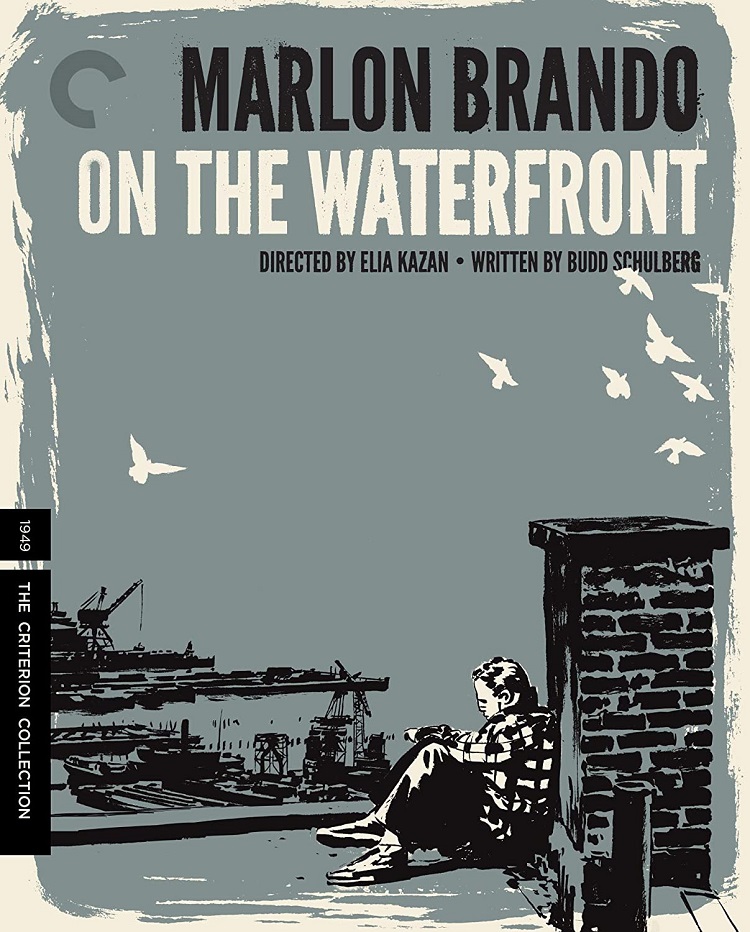
Director Elia Kazan named names. He at first refused to testify before the House Committee on Un-American Activities but when push came to shove, he gave them the names of eight people who had been Communists. Though it angered a great many in the more liberal Hollywood circles, it saved his career. He was not blacklisted and went on to make a great many more wonderful films including On the Waterfront. That film was his own personal statement as to why he testified.
It’s hard to watch the film today without that baggage seeping through. Harder still is to watch it with fresh eyes as so much of the film influenced everything that came after it. Anybody who knows anything about film history knows the famous “I could have been a contender” speech even if they’ve never actually seen it. Fathom Events along with Turner Classic Movies presented the film this past Sunday in theaters across the nation, with encore screenings Wednesday, April 27, 2016 at 2 p.m. and 7 p.m. local time, and it was absolutely a delight to see.
There is a lot about the film that now seems out of place. Parts of it seem very old-movie stagey where the extras move as one to preordained places. Some of the story feels faked as when the girl changes the hero’s heart. Even the mafia is straight up old Hollywood, which seems weird in a world where teenagers quote Goodfellas in chat rooms. It’s a good film, a great one even, but one that certainly feels a part of its time.
But the acting, oh Lord, the acting is a thing of majesty. Is there a better performance in the history of cinema than what Marlon Brando does here? Maybe. Perhaps Brando’s performance in Kazan’s A Streetcar Named Desire. The rest of the cast is brilliant, and Karl Malden’s “Christ is down here” speech would be talked about endlessly were they not all completely overshadowed by Brando.
It’s hard to imagine what an influence Brando had on cinema. Just last night, I was watching Criterion’s excellent release of the 1945 film Brief Encounter (read my review) and it’s absolutely incredible to see how stiff those (actually really rather wonderful) performances feel when compared to Brando.
He plays Terry Malloy, a dockworker who used to be a prize-fighter. He intentionally lost his shot at the championship because his mobbed-up brother, Charley (Rod Steiger), asked him to for the boss, Johnny Friendly (Lee J. Cobb), who saw a lot of money in it. Friendly runs the waterfront, deciding which longshoremen get work that day and which don’t. Terry is happy to do what he’s told as long as he gets a few bucks to get by with.
But then they ask Terry to trick a man into climbing to the top of his roof where they then throw him off. Terry just thought they were gonna talk to him – keep him from squealing – and suddenly he starts wondering what he’s doing with his life. This death makes Father Barry (the aforementioned Karl Malden) rethink his rather lackadaisical approach to his parish and start getting involved with the dockworkers and push against the mob’s stranglehold.
Edie Doyle (Eva Marie Saint in her first movie role) is the sister of the dead man. She brings a touch of kindness to Terry’s life and is one of the many factors in getting him to turn and testify against Friendly. Her performance is lovely – soft but tough, smart but scrappy – and it’s easy to see how she became a star.
I hadn’t seen the film in a great many years, since college probably, and seeing it all these years later, with so much more life under my belt was striking. Marlon Brando’s influence reaches far and wide but there is nothing like seeing the real thing in a real movie theater. Better still is seeing it with TCM’s Ben Mankiewicz giving an interesting intro and outro to the film.